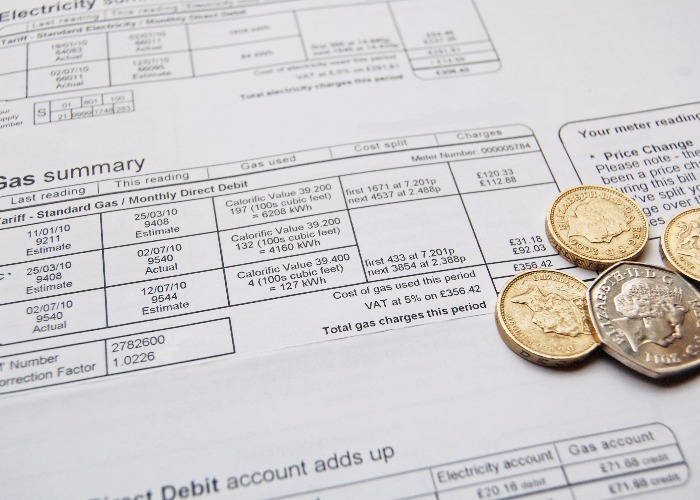The energy price cap is falling: your rights if your supplier refuses to lower your Direct Debit

With the energy price cap set to fall by 12% next month, Katy Ward explains your rights if your energy supplier refuses to lower your bill.
After years of sky-high energy bills, many Brits no doubt welcomed the news that prices are set to fall by 12% next month.
Following changes to the price cap set by regulator Ofgem, the average household bill is expected to drop to £1,690 from 1 April, which is down from £1,928.
In theory, this should mean that most of us will have received a notice from our supplier telling us that our Direct Debit is coming down.
Sadly, however, the energy industry hasn’t always had the best reputation for treating its customers fairly.
So, what should you do if your energy company wants to keep your payments at their current level or even put your bills up?
In this article, we look at your rights surrounding the price cap and what you can do if your supplier isn’t playing fair.
Read our tips and techniques for lowering your energy bills
What is the price cap?
Introduced by Ofgem in 2019, the price cap is the maximum amount that a company can charge for every unit of energy a customer uses if they are on a standard variable tariff.
Its aim is to prevent households from being hit by exorbitant bills and to ensure competition within markets.
The price cap also includes standing charges, which you would pay even if you hadn’t used any gas or electricity during your bill period.
Crucially, the price cap is not a maximum amount that you can pay per year on your energy bills and the figure of £1,690 represents an average for the typical household.
There is, in fact, no set maximum that you can pay as this depends on your usage.
Your rights and the price cap
When it comes to the price cap, there is one golden rule: your energy company cannot charge you more per unit than the cap allows.
All domestic suppliers must follow strict conditions under the terms of their gas and electricity supply licences, which includes adhering to the price cap.
If a company breaks these rules, it could face enforcement action from the regulator, including fines.
These licence conditions also state that a supplier must take adequate measures to ensure that Direct Debits accurately reflect their customers’ usage.
However, this is where things get a little murky as Ofgem’s rules do not provide a concrete explanation of what constitutes reasonable measures.
As such, it may be up to you to prove that your bill doesn’t reflect the amount of energy you actually use.
|
PROMOTION
|
||
|
How to fight back if your Direct Debit is wrong
If your supplier hasn’t reduced your Direct Debit (and you think it should), you should first call the company and ask it to justify the amount it is charging you.
Under the terms of its licence, your supplier must provide a clear explanation of how it has calculated your payments.
For example, it won’t have much grounds for keeping your bill the same if you’re always in credit on your account.
It should also provide you with the meter readings used to make these calculations.
If you don’t have a smart meter, you should send your provider your most up-to-date readings.
Put your request in writing
If your supplier refuses to amend your Direct Debit over the phone, you should put your request in writing.
Your letter should make it clear that you are prepared to complain to the Ombudsman if the matter is not resolved.
The threat of the Ombudsman may be enough to make your supplier play ball.
You can read more about complaining to the Ombudsman below.
Search for a cheaper energy deal: see if you could save hundreds
What if I am in debt?
Whether or not you are in debt with your energy company, it cannot charge you more per unit for your usage than the price cap allows.
Again, this would be a breach of its licensing conditions and could result in enforcement action.
Even if you are behind on your payments, you have the right to ask for a clear explanation of your bill amount.
If you only have a small debt on your account, you may be in a better negotiating position if you pay this off before contacting your supplier (provided you can afford to do so).
Agreeing a repayment plan
Although your supplier cannot charge you above the price cap for the units of energy you use, it can ask you to commit to a repayment plan to clear any arrears on your account.
This typically involves paying off your debts in monthly instalments, plus an amount for your usage.
The rules for dealing with customers who are behind on their bills are clearly set out under section 27 of the Gas Supply Licence.
When agreeing a repayment plan, your supplier must offer tailored support that takes into account how much you can afford to pay based on your outgoings and other debts.
Your plan should also agree how much of your payments will go towards covering your actual energy usage and what portion goes towards clearing your debt.
In certain circumstances, your supplier may also offer repayment holidays.
Read our guide on the cheapest ways to get out of debt
Can I only pay for my actual usage?
Most of us pay for our energy through a fixed Direct Debit.
Under this model, your supplier will estimate your annual bill based on your expected usage and divide this figure into 12 equal monthly instalments.
However, most suppliers also allow you to set a variable Direct Debit based on your actual energy use or to pay your bill on arrival (usually at the Post Office or through a card payment).
If you choose these methods, you’ll likely face significantly higher bills during the colder winter months, which could prove unaffordable if you’re on a tight budget.
Although you pay the same rate per unit with a variable Direct Debit as with a fixed Direct Debit, prices will be higher if you pay on receipt of your bill.
Note, you’ll need a smart meter or to submit regular meter readings if you want to pay this way.
How to complain to the Ombudsman
If you fail to reach an agreement with your supplier over your Direct Debit amount, you can complain to the Energy Ombudsman.
Be aware, your energy company has up to eight weeks to resolve the matter or issue you with a deadlock letter before you can escalate your complaint.
After receiving all the relevant information from you and your supplier, the Ombudsman will carry out an investigation, which typically takes around six weeks.
If the Ombudsman upholds your complaint, your supplier will need to act on the ruling within 28 days.
Read why one writer believes the energy price cap isn’t fit for purpose
A final word of caution
While we would always encourage you to fight back if you believe you are being ripped off by your supplier, it is important to plan ahead when agreeing your Direct Debit amount.
If your payments don't cover your annual usage, you could end up significantly underpaying and be hit with an unaffordable catch-up bill to cover your winter costs.
Comments
Be the first to comment
Do you want to comment on this article? You need to be signed in for this feature
